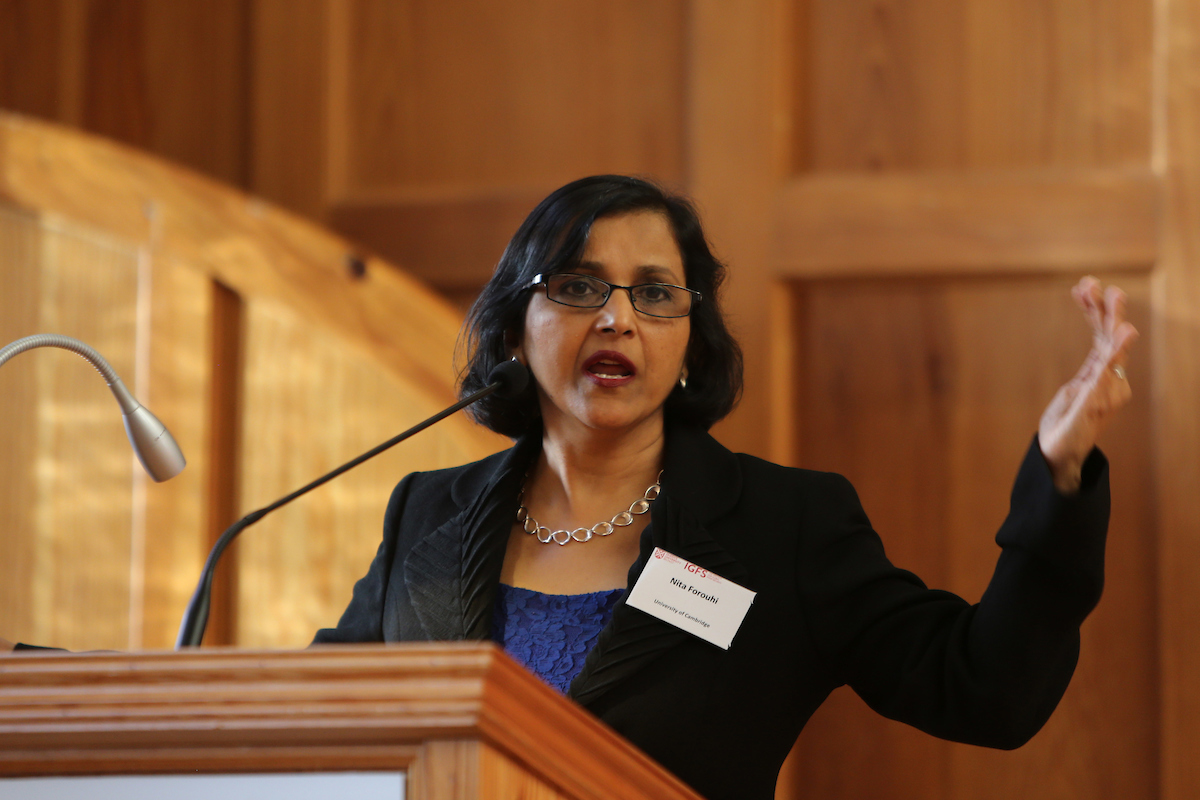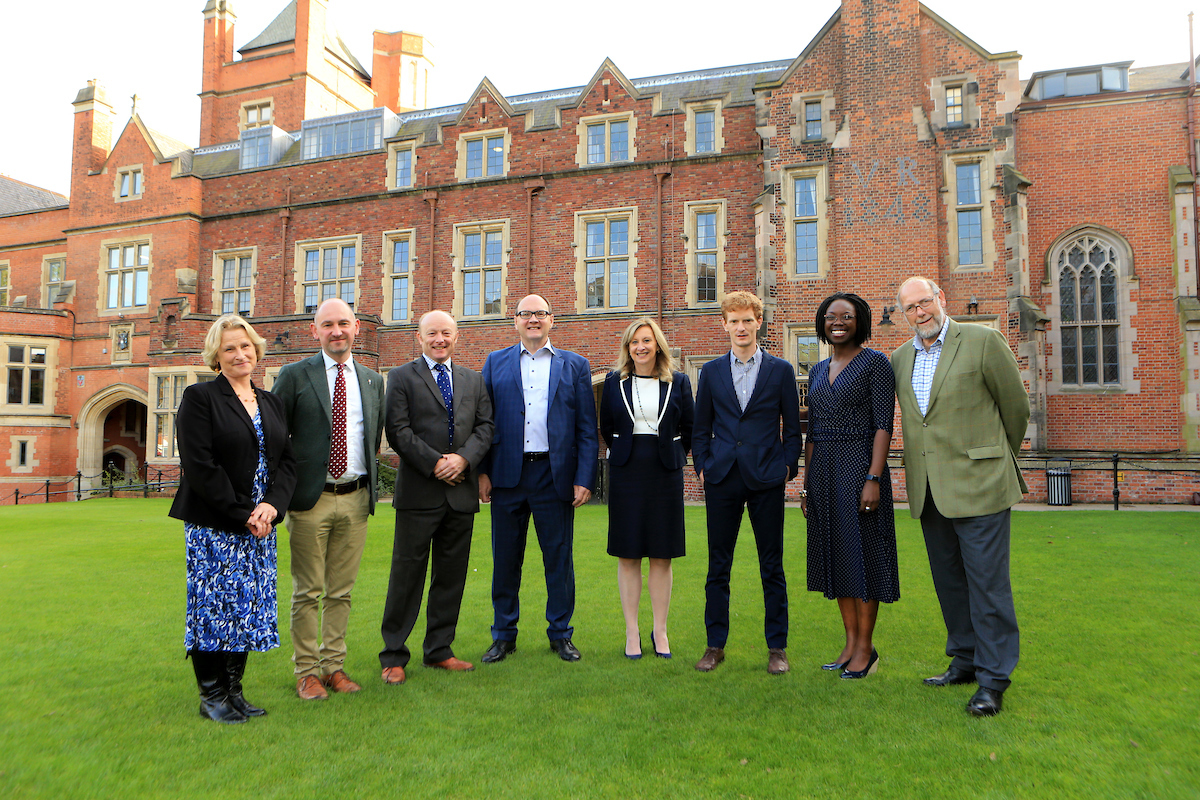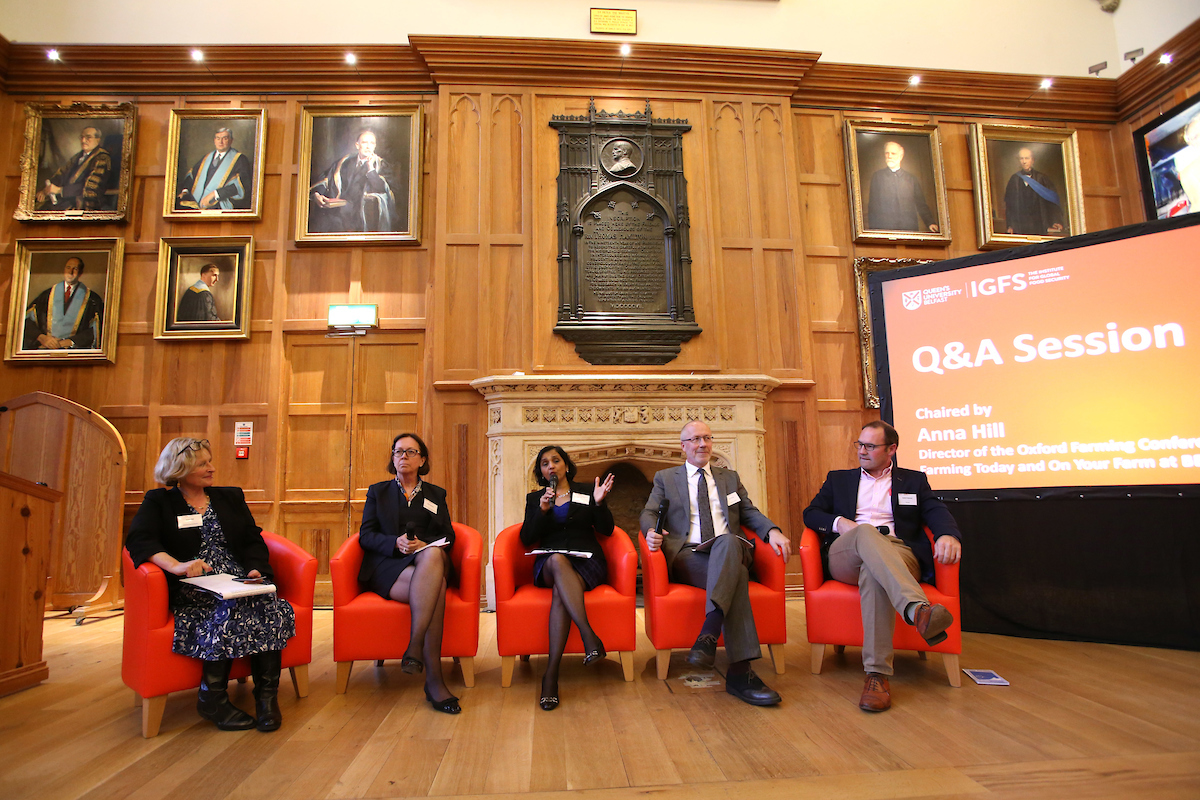Nutritional risks replace smoking as society’s "biggest killer"
Non-communicable diseases such as diabetes, cancer, obesity, Alzheimer’s and coronary disease account for the single-largest burden on the public purse in the UK – an estimated £148bn per annum – according to a prominent nutritionist.

 Nita Forouhi, Professor of Population Health and Nutrition at the University of Cambridge and an honorary consultant with Public Health England was addressing the Growing a Healthy Society – The Role of Food event, organised by IGFS, in partnership with the Oxford Farming Conference (OFC).
Nita Forouhi, Professor of Population Health and Nutrition at the University of Cambridge and an honorary consultant with Public Health England was addressing the Growing a Healthy Society – The Role of Food event, organised by IGFS, in partnership with the Oxford Farming Conference (OFC).
Referring to the recent Eat Lancet report, she said the “trilemma” facing society – the relationship between diet, environmental sustainability and health – could only be solved by farmers, food producers, food retailers, scientists and regulators coming t ogether.
ogether.
The idea of “food as medicine” was a game-changer – that by encouraging better diets, public health could be improved, easing the burden on the health service and our economy. It had only been in recent years, she added, that it had been proven, for example, that diabetes could be reversed through diet.
Asked what constituted a healthy diet, particularly in terms of weight loss, she said he best diet was “the one you can stick to”.
Responding to her points was a panel (see pic, above) of experts including Professor Ian Young, Chief Scientific Advisor at the Department of Health, NI; Professor Alice Stanton of the Royal College of Surgeons in Dublin; and Justin Coleman, Technical Director at Moy Park Chicken. Well-known radio presenter Anna Hill, from Radio 4’s Farming Today programme, chaired the discussion.
In her comments, Professor Alice Stanton said that nutritional risks had “taken over from cigarette smoking as the biggest killer”.
She said the current emphasis on eating less meat was driven by environmental arguments, rather than health. Her research indicated red meat caused “less than 1% of nutrition-related deaths” and that, eaten in moderation (two to five times per week), red meat actually had a positive effect on health.
A diverse audience in the Great Hall at Queen's included all the Directors of the Oxford Farming Conference (see pic, above right); the former Secretary of State for NI, the Rt Hon Owen Paterson MP; Queen's VC, Professor Ian Greer; and PVC of the MHLS Faculty, Professor Stuart Elborn.
After the event, Matt Naylor, Chair of OFC 2020 said: “Agriculture can offer so many solutions to the societal and environmental challenges that we currently face. We were delighted to partner with IGFS to open this conversation ahead of our conference proper next January.”
Recordings of the event can be found below;
- Professor Ian Greer and Matthew Naylor
- Professor Nita Forouhi
- Professor Alice Stanton
- Professor Ian Young
- Justin Coleman
- Panel discussion
Additional photographs from the event can be found here
